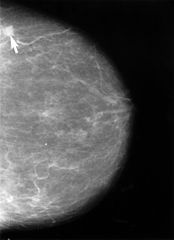Author Interviews, Breast Cancer, JAMA, USPSTF / 12.09.2019
USPSTF: Women at High Risk of Breast Cancer Should Consider Risk-Reducing Medications
MedicalResearch.com Interview with:
Dr. Carol Mangione, M.D., M.S.P.H., F.A.C.P.
Division Chief of General Internal Medicine and Health Services Research
Professor of Medicine
Barbara A. Levey, MD, and Gerald S. Levey, MD, endowed chair in Medicine David Geffen School of Medicine University of California
Los Angeles
Professor of public health at the UCLA Fielding School of Public Health.
MedicalResearch.com: What is the background for this study?
Response: We all want to find better ways to help prevent breast cancer, a disease that impacts the lives of too many women in the United States each year. Fortunately, the Task Force found there are steps that women at increased risk can take to reduce their chances of developing breast cancer.
(more…)































